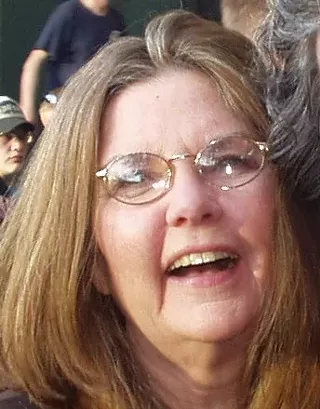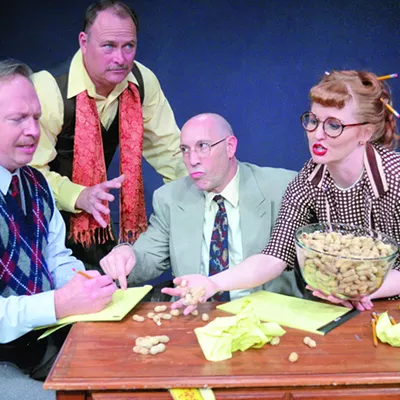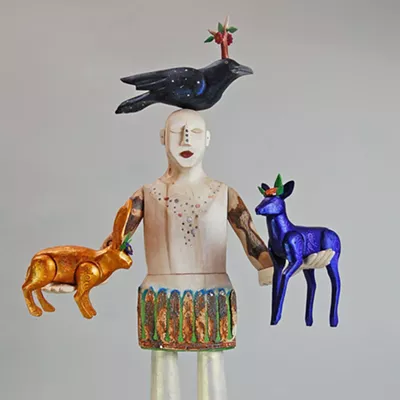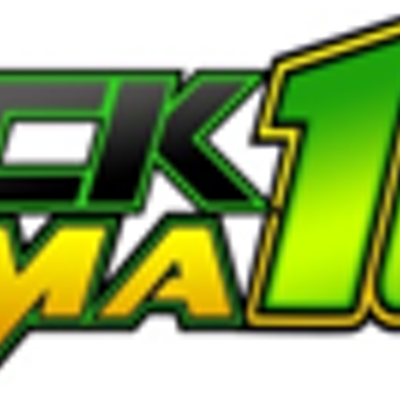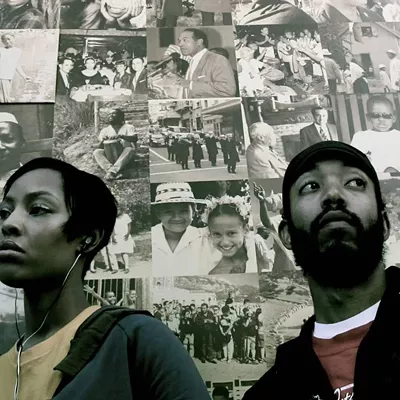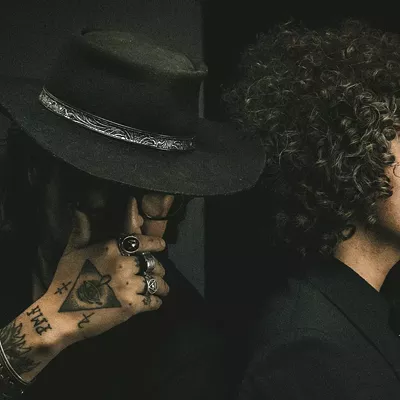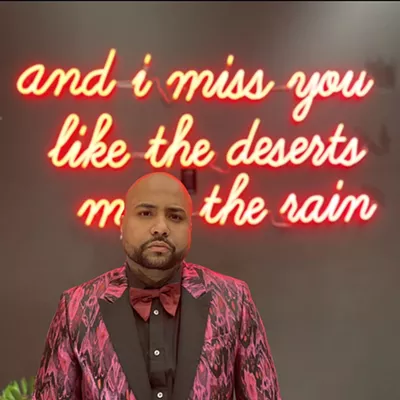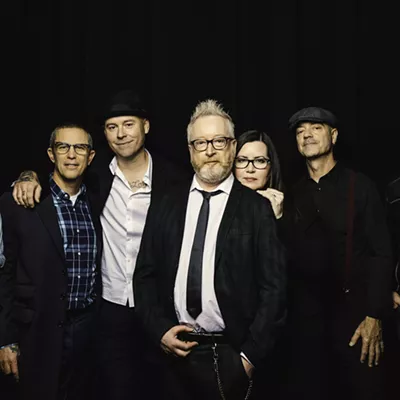Mark Pickerel couldn't name his influences even if you were lame enough to ask. He seems to have the entire canon of 20th century Western civilization's popular music at his disposal. "I lived on Radio Road in Ellensburg, Wash., right next to a gigantic country AM radio tower, so I actually grew up listening to way more country music than I cared to," he says.
Luckily, his much older, twin sisters lived in the big city (Spokane) and had sophisticated friends who would bring back the latest music from New York. "They turned me onto all this really hip soul and funk and rap," he says. At age 16, Pickerel worked at a record store whose owner's personal collection leaned toward old blues and early classic ska and reggae, as well as Bob Dylan, Leadbelly and Woody Guthrie. Pickerel took his pay in music. "I was constantly acquiring more music and experimenting," he says. "Eventually, I discovered groups like the Ramones, the Over the Edge soundtrack, stuff like that.
"When I met (Gary) Lee Connor from the Screaming Trees, he had this massive record collection--13th Floor Elevators and Love and the Psychedelic Furs. He had the biggest influence on my taste in music of any one person."
Pickerel joined Lee, Van Connor and Mark Lanegan in forming the Screaming Trees, on the leading edge of what would become Seattle's grunge juggernaut. He departed the band in 1991 for reasons he now attributes to immature coping mechanisms exacerbated by the stress of touring. He opened his own record store in Ellensburg and began taking offers to play drums with bands he admired, writing songs and playing guitar--when people started dying.
"I'd been asked to become the drummer for the Gun Club before Jeffrey Lee Pierce died, and that was a big blow," he says. "I was going to be a guest drummer for some of the songs on what would've been the next Nirvana record in line, and then Kurt died."
Pickerel actually recorded some tracks with Nirvana, a story that occasionally impressed cute girls, but took on the aspect of a tall tale to many. That was before the 2004 release of With the Lights Out, a box set of alternates and demos from Nirvana sessions. Two Leadbelly covers feature Pickerel on drums. "I think 'Grey Goose' is just filler. I don't think it really deserved placement on this CD," he says, not to look a gift horse in the mouth, "But I think 'Ain't It a Shame' is a brilliant recording, and really exciting."
The release couldn't have been timelier. "I was going through a transition of closing down the record shop and moving to Seattle," he says, "with the intention of playing and performing music full time. I hadn't quite figured out how I was going to afford to make that career change. Then I found out that Nirvana's people intended not only to release these songs that I played on, but they were gonna pay me handsomely. I was ecstatic!"
Pickerel had previously released two CDs as The Dark Fantastic, thinking the name he "signed on checks and leases" was boring. He now found his own name had currency, a fact he divined from the e-mail traffic on his Web site.
Moreover, he felt a new, more stripped-down artistic direction justified a departure from his Dark Fantastic past. "I was a little obsessive with arrangements and production and vocal overdubs, and it was really lush with lots of synthesizers. A lot of that was because I was insecure about my singing, which really came from being drummer for people like Mark Lanegan and Neko Case."
Pickerel need not have worried. His voice is mesmerizing and character-laden--worn-in, rumbly, almost Nick Cave-like. In his solo-acoustic incarnation, his songs could almost be country, but it's the country of western Washington State and its tumbleweed desolation. Pickerel often views that world with the wonder and imagination of a young boy. It's a point of view from a childhood place he often returns to for comfort and inspiration.
"I spent a great deal of time by myself as a child. I used to take a Greyhound bus between Ellensburg and Spokane (to visit family) through the middle of the night, not having any adult supervision, and that's the way I still kind of see the world. I still go back to that place a lot emotionally. It's a sad place, but it's also comfortable for me."
From that place arise his favorite songs: the magically alluring "Graffiti Girl," wherein a boy is inspired to leave his humdrum hometown by a fantasy about the kind of girl who would scrawl her name on a boxcar, and "Town Without the Blues," which treats with magic realism the common youthful fantasy that somewhere out there, nothing bad ever happens.
There's also the title track of his May 2006 Bloodshot release, Snake in the Radio. A young boy is listening to the radio and thinking there's something not quite right about it; some malevolent force has taken over. The snake speaks: "Come a little closer child / there's a message you can spread / I'll control the thoughts and the sounds inside your head."
"I wrote the song as a reaction to the way corporate radio punished the Dixie Chicks after (Natalie Maines') remark about George Bush," Pickerel says. It's the only remotely political message on the record.
Pickerel can't wait to get to Tucson. "I'm so excited to play Club Congress. I played there with four different bands spanning 15 or 20 years. I wish I could live at Hotel Congress!"

